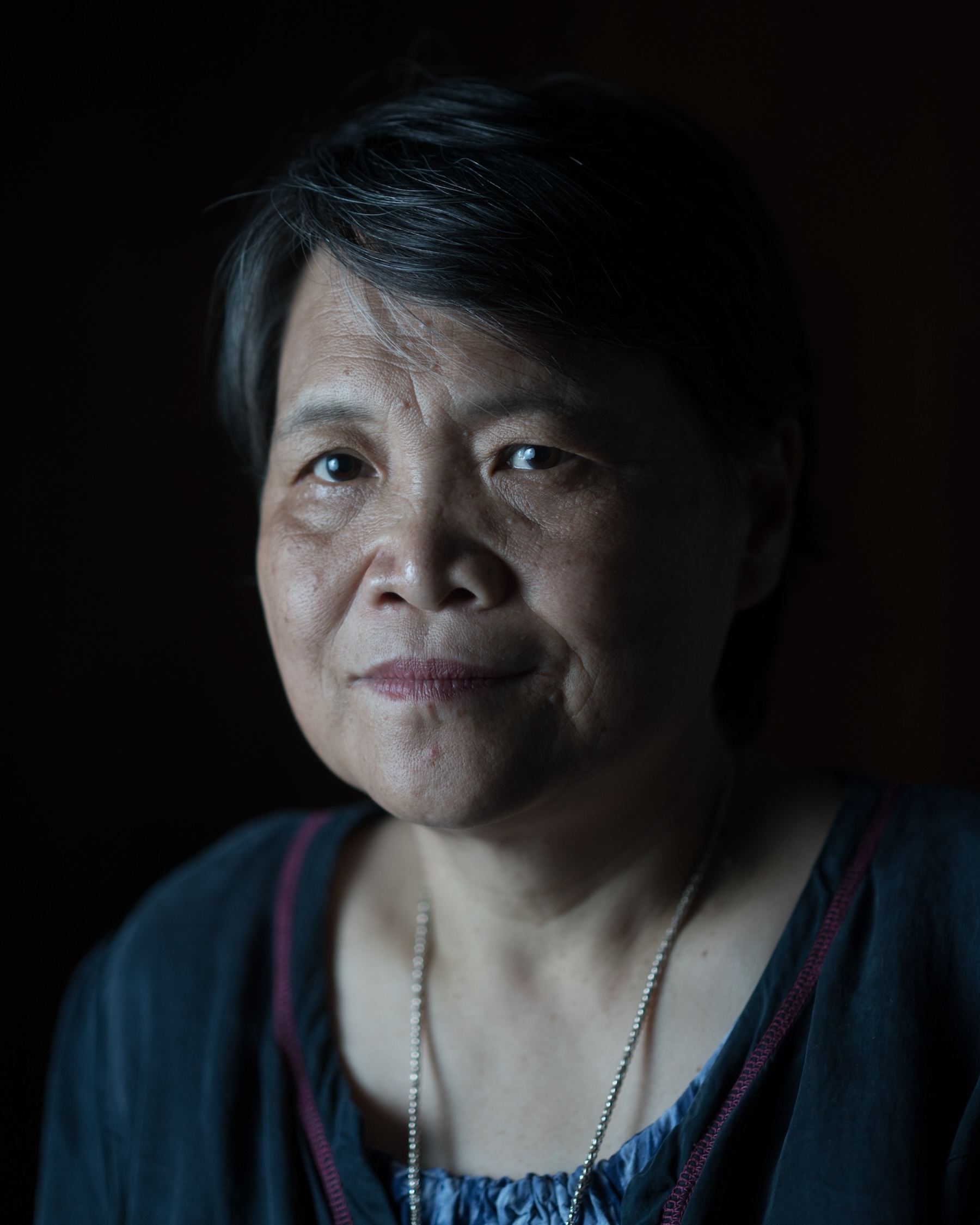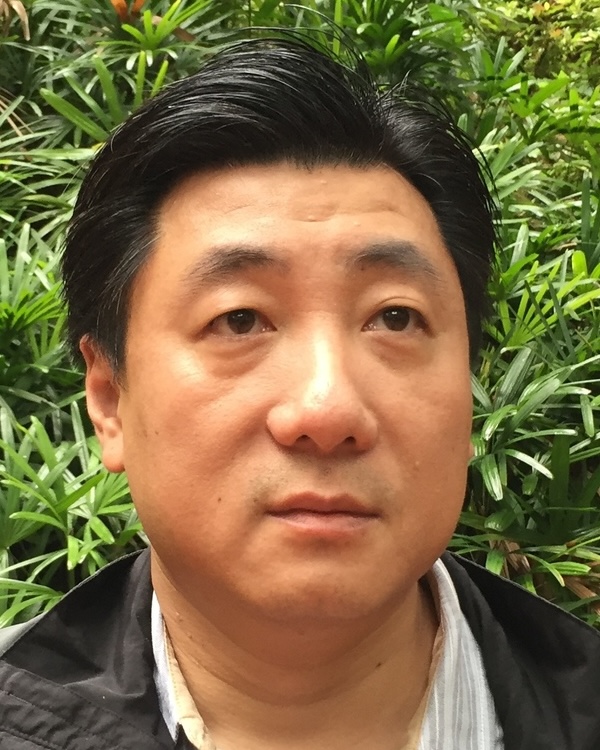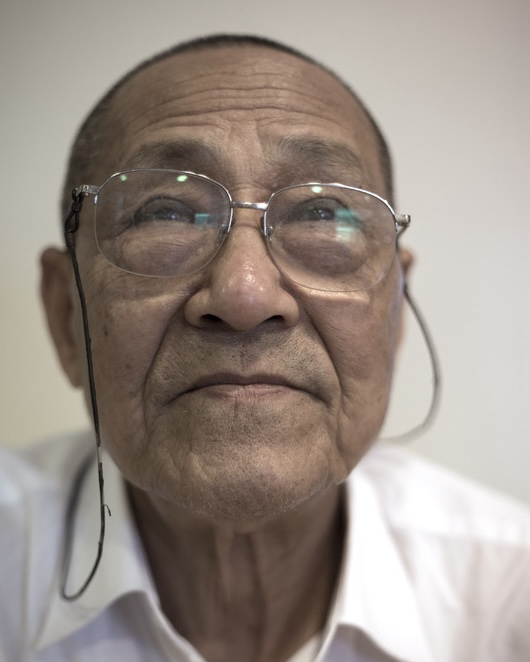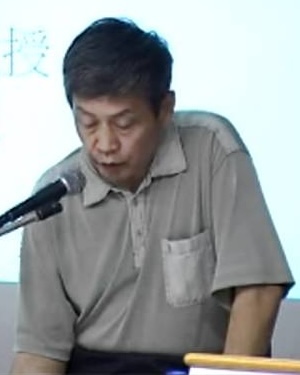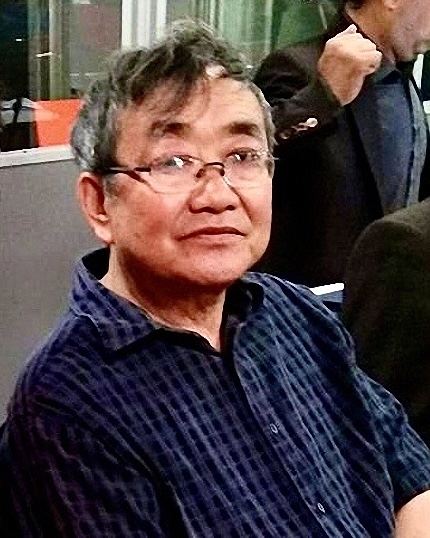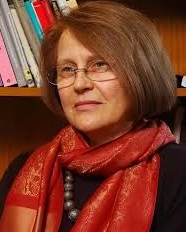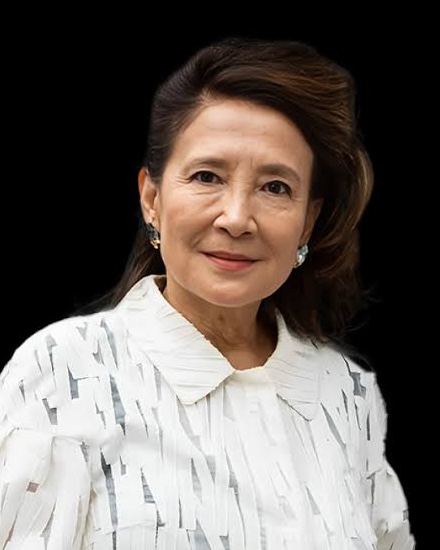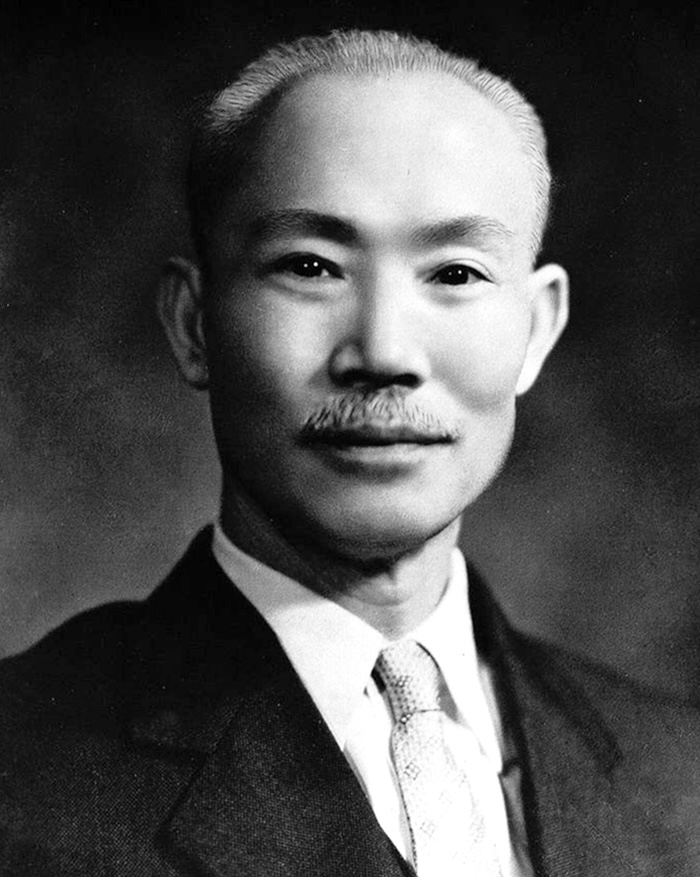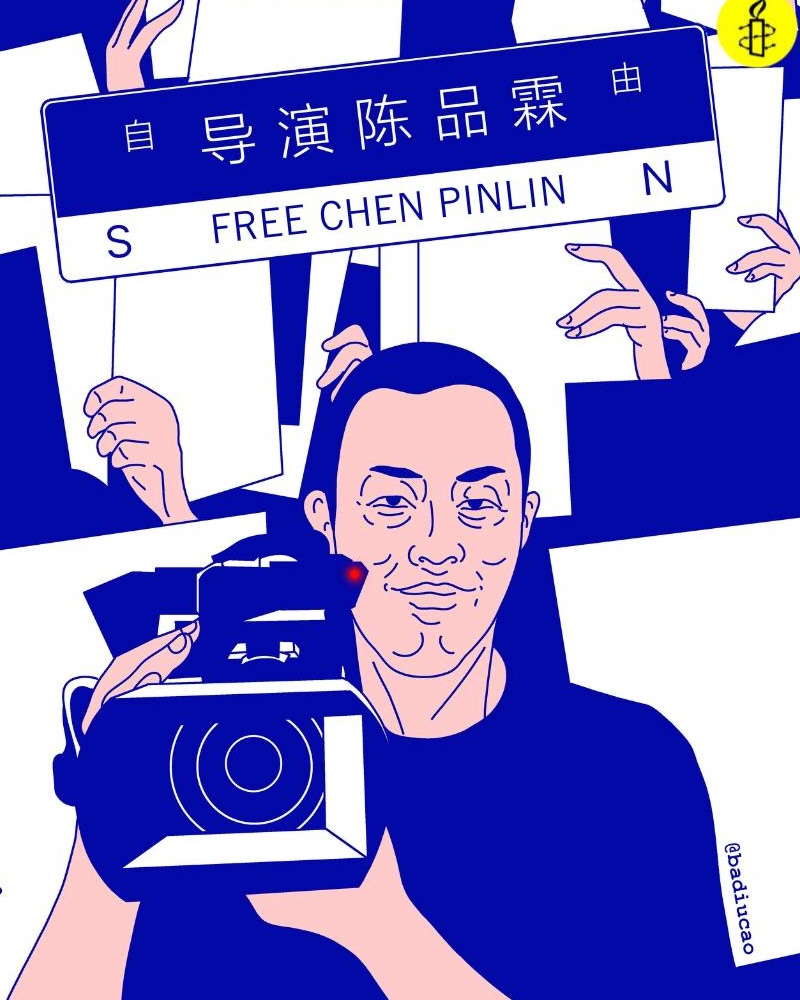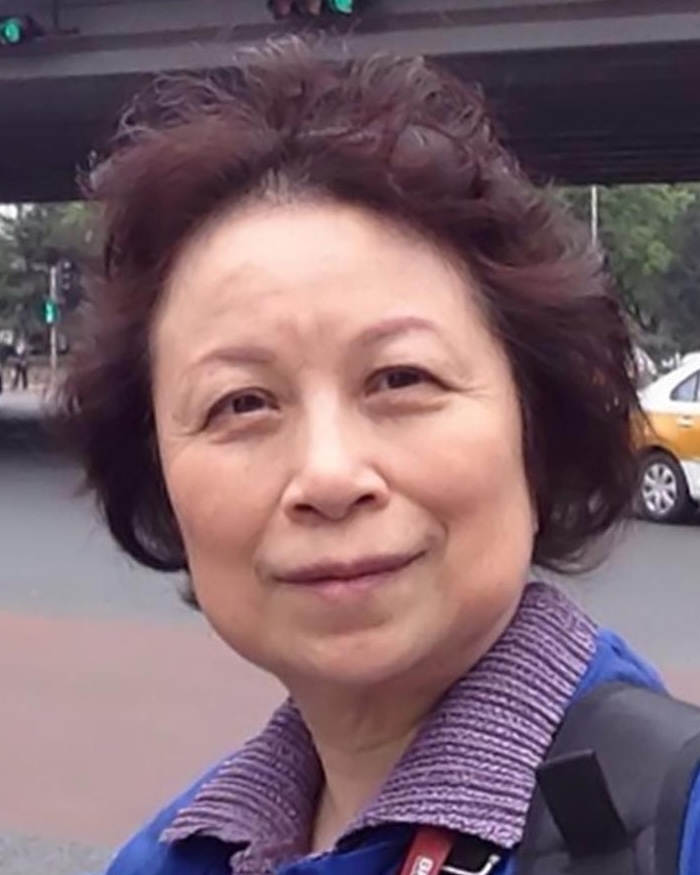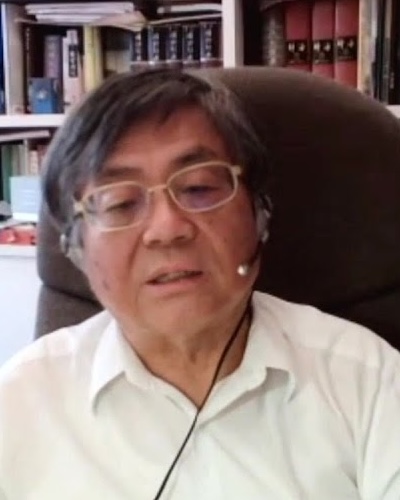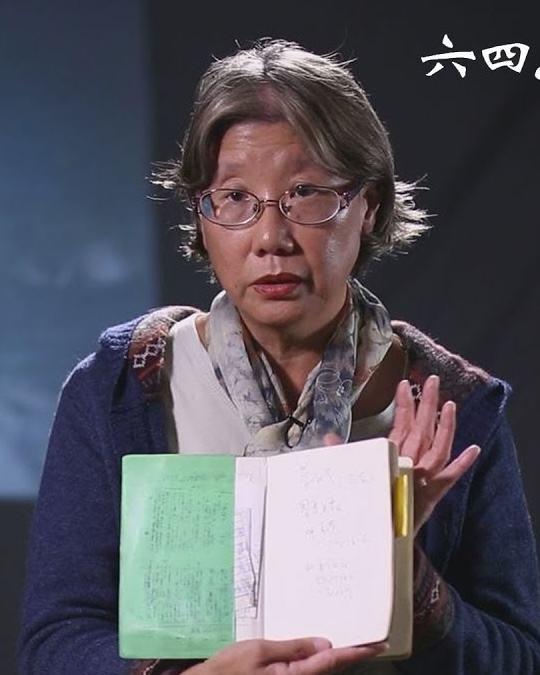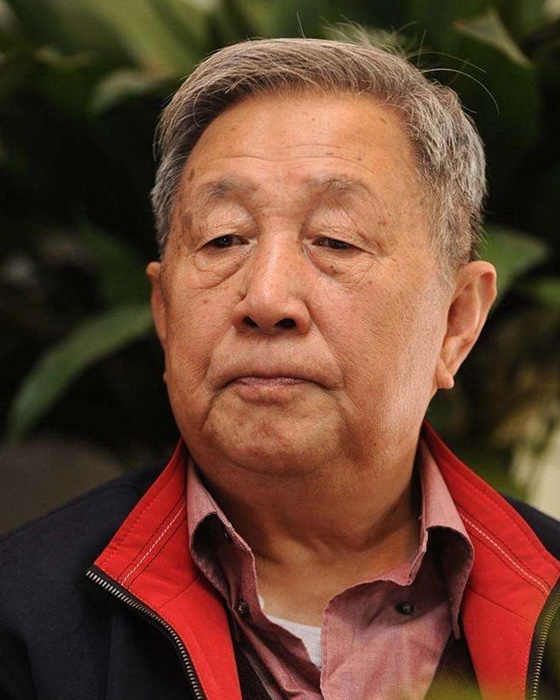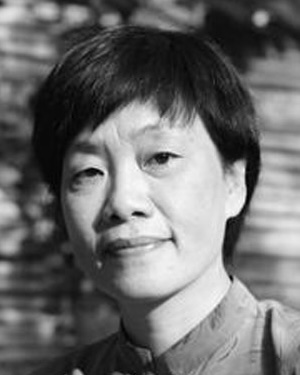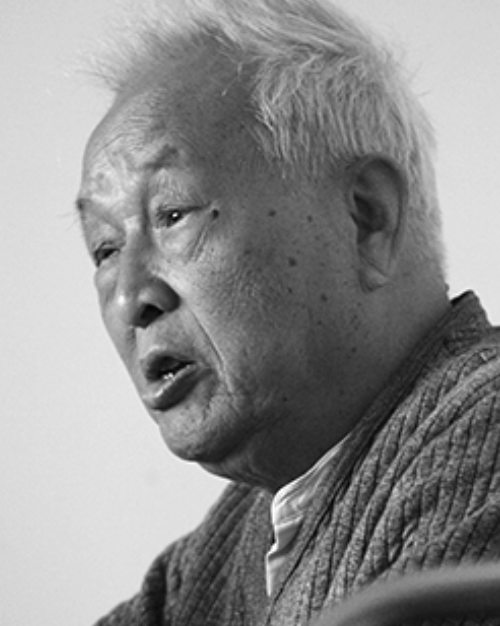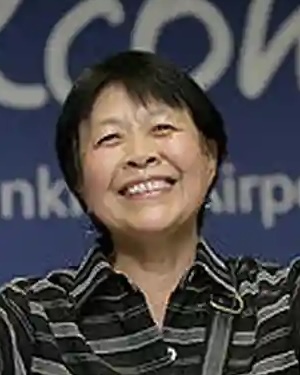Explore the creators
Showing 225 creators in the collection
225 creators
Ai Xiaoming
Ai Xiaoming (1953—), feminist scholar, writer, and documentary filmmaker.
Ai received her Ph.D. in Modern Chinese Literature from the Beijing Normal University in 1987, making her the first female doctorate in literature in the post-Cultural Revolution era. She taught at the Department of Cultural Foundations of the China Youth University of Political Studies from 1988 to 1994, and the Department of Chinese Language and Literature of Sun Yat-sen University from 1994 until retiring in 2013.
As a child whose parents were one of the “Five Black Categories”, Ai witnessed and experienced the brutality of the Cultural Revolution. Ai's grandfather, Tang Shengzhi, was a KMT army general, and her father, Ai Renkuan, was labeled a Rightist during the Cultural Revolution.
Then 13 years old, she was forced to denounce her parents and live apart from them. In 1984, still trying to fit into the system, she joined the Communist Party and the next year moved to Beijing to work on her PhD at Beijing Normal University. She taught at the China Youth University of Political Studies, which was under the Communist Youth League.
But during this period Ai befriended outsiders, such as the novelist Wang Xiaobo, becoming a close confidant. In 1988, she spent a year in Hong Kong working on the ideas of Milan Kundera and translated his work <i>The Art of the Novel</i>.
The next year, she returned to Beijing but was unsure what to make of the Tiananmen protests. From her experiences in the Cultural Revolution, she was skeptical of amorphous movements but she delivered blankets to hunger strikers and defended the students’ right to free speech. She avoided being purged from the university but in 1994 she moved to the more relaxed atmosphere of southern China, taking a position at Zhongshan University, focusing on women’s issues.
A turning point came in 1999 when she spent an academic year at the University of the South in Tennessee. She put her on a self-guided study of documentary films, watching two to three films a day. She also noted the political engagement of many local academics.
She took back to China a copy of the <i>Vagina Monologues</i>, which she translated into Chinese and had her students perform. In 2003, she founded the Sex/Gender Education Forum and asked her old friend, the famous documentary filmmaker Hu Jie (<a href="Ai Xiaoming (1953—), feminist scholar, writer, and documentary filmmaker.
Ai received her Ph.D. in Modern Chinese Literature from the Beijing Normal University in 1987, making her the first female doctorate in literature in the post-Cultural Revolution era. She taught at the Department of Cultural Foundations of the China Youth University of Political Studies from 1988 to 1994, and the Department of Chinese Language and Literature of Sun Yat-sen University from 1994 until retiring in 2013.
As a child whose parents were one of the “Five Black Categories”, Ai witnessed and experienced the brutality of the Cultural Revolution. Ai's grandfather, Tang Shengzhi, was a KMT army general, and her father, Ai Renkuan, was labeled a Rightist during the Cultural Revolution.
Then 13 years old, she was forced to denounce her parents and live apart from them. In 1984, still trying to fit into the system, she joined the Communist Party and the next year moved to Beijing to work on her PhD at Beijing Normal University. She taught at the China Youth University of Political Studies, which was under the Communist Youth League.
But during this period Ai befriended outsiders, such as the novelist Wang Xiaobo, becoming a close confidant. In 1988, she spent a year in Hong Kong working on the ideas of Milan Kundera and translated his work <i>The Art of the Novel</i>.
The next year, she returned to Beijing but was unsure what to make of the Tiananmen protests. From her experiences in the Cultural Revolution, she was skeptical of amorphous movements but she delivered blankets to hunger strikers and defended the students’ right to free speech. She avoided being purged from the university but in 1994 she moved to the more relaxed atmosphere of southern China, taking a position at Zhongshan University, focusing on women’s issues.
A turning point came in 1999 when she spent an academic year at the University of the South in Tennessee. She put her on a self-guided study of documentary films, watching two to three films a day. She also noted the political engagement of many local academics.
She took back to China a copy of the <i>Vagina Monologues</i>, which she translated into Chinese and had her students perform. In 2003, she founded the Sex/Gender Education Forum and asked her old friend, the famous documentary filmmaker Hu Jie (see separate entry), to help her document the play’s staging in China. From his work she learned how to make documentary films and the two collaborated on several films, including <i>White Ribbon, The Epic of Central Plains</i> and <i>Care and Love</i>. That same year, she was inspired by the Sun Zhigang case to push for the abolition of the Custody and Repatriation system; she later intervened in the Huang Jing case, the Taishi Village case and other public events.
Her other films include <i>Taishi Village</i> (following the famous events when villagers of Taishi, in suburban Guangzhou, where the government tried to remove the local officials in 2005), <i>Our Children</i> (about the 2008 Sichuan Earthquake), <i>Three Days in Wukan</i> (about Wukan villagers protests against the government’s seizure of their farmland in 2010), and <i>Jiabiangou Elegy</i> (about the persecution of inmates at the Jiabiangou labor camp).
In January 2010, Ai and women rights lawyer Guo Jianmei were awarded the Simone de Beauvoir Prize, an international human rights award honoring women rights defenders. Due to her advocacy, Ai has faced various forms of repression but continues to fight to this day to document history.
For other resources, see <a href=“https://www.nybooks.com/online/2016/09/08/people-in-retreat-chinese-filmmaker-ai-xiaoming/”> an interview with her on the New York Review of Books website</a> and <a href=“https://deepblue.lib.umich.edu/handle/2027.42/55711”>a video interview on the University of Michigan website</a>.
">see separate entry</a>), to help her document the play’s staging in China. From his work she learned how to make documentary films and the two collaborated on several films, including <i>White Ribbon, The Epic of Central Plains</i> and <i>Care and Love</i>. That same year, she was inspired by the Sun Zhigang case to push for the abolition of the Custody and Repatriation system; she later intervened in the Huang Jing case, the Taishi Village case and other public events.
Her other films include <i>Taishi Village</i> (following the famous events when villagers of Taishi, in suburban Guangzhou, where the government tried to remove the local officials in 2005), <i>Our Children</i> (about the 2008 Sichuan Earthquake), <i>Three Days in Wukan</i> (about Wukan villagers protests against the government’s seizure of their farmland in 2010), and <i>Jiabiangou Elegy</i> (about the persecution of inmates at the Jiabiangou labor camp).
In January 2010, Ai and women rights lawyer Guo Jianmei were awarded the Simone de Beauvoir Prize, an international human rights award honoring women rights defenders. Due to her advocacy, Ai has faced various forms of repression but continues to fight to this day to document history.
For other resources, see <a href=“https://www.nybooks.com/online/2016/09/08/people-in-retreat-chinese-filmmaker-ai-xiaoming/”> an interview with her on the New York Review of Books website</a> and <a href=“https://deepblue.lib.umich.edu/handle/2027.42/55711”>a video interview on the University of Michigan website</a>.
Bao Pu
Bao Pu runs New Century Press, a small but highly influential Hong Kong-based publishing house that specializes in works about Chinese politics that would be banned on the mainland. The son of Bao Tong, the well-known policy secretary to deposed Communist Party chief Zhao Ziyang, the younger Mr. Bao participated in the 1989 Tiananmen protests, and then moved to the United States where he became a citizen and worked as a consultant. In 2001, he moved to Hong Kong, working first at a high-tech start-up. In 2005, he and his wife Renee Chiang founded New Century.
The books Bao publishes tap into a vein of political writing that challenges orthodox interpretations of Chinese Communist history; they include the secret journal of Zhao Ziyang (translated as Prisoner of the State), and <a href="https://cn.nytimes.com/china/20150225/c25tiananmen">Xu Yong’s photos of the 1989 Tiananmen protests</a>.
Bu Weihua
Bu Weihua (1950-), is a native of Rugao, Jiangsu Province. In 1963, Bu was admitted to Tsinghua University High School in Beijing, the cradle for the Cultural Revolution's Red Guard movement, and was a Red Guard during the Cultural Revolution. In 1969, Bu went to Yanchuan County, Shaanxi Province, to join the army; from 1971 to 1975, he served as a soldier in the 3262nd unit of the Shenyang Military Region. After demobilization, he worked at the Beijing Institute of Technology. In 1977, Bu was admitted to the Department of History of the Beijing Normal College, and after graduation in 1982, he worked for the Commission for Collecting CCP Historical Data. In 1988, he started to work for the Central Party History Research Office, and retired in 2010.
Bu has devoted himself to the study of the history of the Cultural Revolution. His works include “The Development of the Red Guards in Tsinghua University High School” (published in the party-led journal <i>CPC History Studies</i> in 1999), and <i>Smashing the Old World: The Turmoil and Havoc of the Cultural Revolution</i> (published by Research Centre for Contemporary Chinese Culture of Chinese University of Hong Kong in 2008.
Chang, Jung
Jung Chang (1952- ) is a Chinese-British writer. Born in Yibin, Sichuan Province, Chang's maternal grandfather was Xue Zhiheng, a military general in the Nationalist government, and her father was the deputy propaganda minister in Sichuan.
During the Cultural Revolution, Chung briefly joined the Red Guards, and worked as a farmer, in a sand foundry, and as an electrician. Her parents were later labeled capitalist roaders and persecuted because of her father's mild criticism of the Cultural Revolution. In 1973, Chang enrolled in the department of foreign languages of Sichuan University, where she stayed on to teach after graduation.
In 1978, she was sponsored by the Chinese government to study linguistics at the University of York, where she received her PhD in 1979, making her the first Chinese mainlander to receive a doctoral degree from a British university since the CCP came to power. She has taught at SOAS University of London, where she is an honorary fellow.
Chang is the author of a number of historical biographies influential in the West, including <i>Madame Sun Yat-sen</i> (co-authored with her husband Jon Halliday, 1986), a family autobiography <i>Wild Swans: Three Daughters of China</i> (1992), <i>Mao: the Unknown Story</i> (co-authored with Halliday, 2005), <i>Empress Dowager Cixi: The Concubine Who Launched Modern China</i> (2013) and the story of the Soong sisters <i>Big Sister, Little Sister, Red Sister</i> (2019).
Chen Cheng
Chen Cheng (January 4, 1898 - March 5, 1965), a native of Zhejiang Province, enrolled in the Baoding Military Academy in 1919, joined the Chinese Nationalist Party in 1920, was assigned to the Zhejiang Army after graduating in June 1922, and then left to join the Guangdong Army in Guangzhou, where he become a captain and served as a guard for the Grand Marshal's Office of Dr. Sun Yat-sen. In June 1924, the Whampoa Military Academy was formally established, and Sun sent Chen to the Academy for training because of his outstanding performance in battle. Chen participated in the National Revolutionary Army's Eastern Expedition, the Northern Expedition, the two Chinese civil wars and the Second Sino-Japanese War, and served as Corps Commander, Field Army Commander-in-Chief, Chairman of the Hubei Provincial Government, and Chief of Staff of the Ministry of National Defense. After arriving in Taiwan, he served as Governor of Taiwan Province, Chief Executive, Vice President, and Vice Chairman of the Kuomintang. He died of liver cancer in 1965.
In 2005, the Academia Historica of Taiwan published *Chen Cheng's Memoirs*, a six-volume series covering Chen’s memories of the Northern Expedition, the Chinese Civil War, the War Against Japan, and his time in Taiwan.
Chen Pinlin
Chen Pinlin, online alias “Plato”, was born on August 8, 1991, in Xiapu County, Fujian Province. He resided in Shanghai, and is the director of the documentary “Not the Foreign Force” about the White Paper Movement in Shanghai.
During the three years of the "zero-COVID" policy enforced by Xi Jinping's government, the daily life and freedoms of the people were severely limited. A fire in Urumqi, Xinjiang, finally ignited public dissatisfaction with the measures. On November 26, 2022, when the people of Shanghai spontaneously gathered in the streets to mourn the victims of the fire, no one expected that this memorial activity would lead to nationwide protests against the pandemic policies. At the scene, Chen Pinlin and his girlfriend, Wang, filmed many protest videos at the protest site on Urumqi Middle Road in Shanghai.
Chen Pinlin felt it was necessary to leave a historical record of the movement. He wrote a script, edited it, and produced it into the documentary “Urumqi Middle Road”. The English title of the film is <i>NOT THE FOREIGN FORCE</i>.
In November 2023, on the anniversary of the White Paper Movement, Chen Pinlin uploaded the documentary to YouTube and other social media platforms, garnering hundreds of thousands of views. Less than a week later, he and his girlfriend were arrested. His girlfriend was released on bail, while Chen Pinlin remained in custody.
On January 5, 2024, Chen Pinlin was formally arrested on suspicion of "picking quarrels and provoking trouble" and detained at Baoshan District Detention Center in Shanghai.
On September 26, 2024, lawyers met with Chen Pinlin and learned that he had to sleep on his side in the detention center, only allowed one hour of outdoor exercise a month, and his legal rights were not properly protected.
According to a report by the Rights Defense Network on January 7, 2025, Chen Pinlin’s first trial was held at 1:45 p.m. on January 6, 2025, in the Third Court of Baoshan District Court, where he was sentenced to 3 years and 6 months in prison. His sentence will end on May 27, 2027.
Chen Xiaoya
Chen Xiaoya (1955- ), a native of Changsha, Hunan Province, graduated from the Department of History at Hunan Normal University in 1982, worked as an editor and reporter, and then joined the Institute of Political Science of the Chinese Academy of Social Sciences as an associate researcher. In 1996, she published History of the 1989 Democracy Movement: A Panoramic Record and Contextual Analysis of the 1989 Tiananmen Incident in Taiwan, for which she was then dismissed from her job. However, she insisted on continuing her research, collecting information, conducting interviews, and expanded the original book to three volumes totaling more than 1.36 million words. In January 2019, Chen Xiaoya planned to travel abroad, but was stopped at the border and restricted from leaving the country on the grounds that she might jeopardize national security.
Chen Yung-fa
Chen Yung-fa (September 1, 1944 -) is a history scholar. Chen was born in Chengdu, Sichuan Province to a farmer-worker family, and his family moved to Taiwan in 1949. Chen graduated from the Department of History of National Taiwan University with a master's degree. After earning his doctorate in history from Stanford University, he became a professor at National Taiwan University.
Chen has served as a researcher and director of the Institute of Modern History of the Academia Sinica of the Republic of China, a professor in the Department of History at National Taiwan University, and is currently a Corresponding Research Fellow at the Institute of Modern History of Academia Sinica, where he was elected an academician in 2004.
Chen's main field of research is the history of the Chinese Communist Party. His works include <i>Poppies under the Red Sun: The Opium Trade and the Yan'an Model</i>, <i>Yanan’s Shadow</i>, and <i>Seventy Years of China’s Communist Revolution</i>.
Cheng Nien
Nien Cheng (pinyin: Zheng Nian, January 28, 1915 - November 2, 2009) was a Chinese-American writer. She was originally from Hubei Province and her father was a KMT official. Cheng studied at Yanjing University, then at the London School of Economics and Political Science in the United Kingdom, during which she married a Chinese student Zheng Kangqi. After completing their studies, The couple returned to China to support the war against Japan. Zheng Kangqi joined the Ministry of Foreign Affairs and later was stationed in Australia, where the couple lived for seven years. After 1949, the couple returned to Shanghai, and Zheng Kangqi worked for the British Shell International Petroleum Company as the General Manager of its Shanghai office. In 1957, Zheng Kangqi died of cancer, and Nien Cheng began to work as an assistant to the new General Manager, succeeding her husband. During the Cultural Revolution, Cheng was accused of being a British spy, had her home raided, and was detained in Shanghai's No. 1 Detention Center from 1966 to 1973, during which her only daughter was killed by Red Guards. After her release, Cheng worked for the local People's Political Consultative Conference, until she moved to the U.S. in 1980. In 1986, Cheng published Life and Death in Shanghai, a book documenting her personal experiences from the beginning of the Cultural Revolution to her departure for the U.S. The book was translated into several languages and published in various countries. On November 2, 2009, Cheng passed away in Washington, D.C. due to illness.
Choi Suk Fong
Choy Suk Fong was a reporter for Sing Tao Daily. In April 1989, two years into her career, Choy was stationed in Beijing to cover the 70th anniversary of the May Fourth movement, which coincided with the outbreak of the 1989 pro-democracy movement. During her forty days in Beijing, she witnessed the protests and the suppression, and completed dozens of news reports. After coming back to Hong Kong, she continued to participate in social movements as a human rights activist and volunteer.
Cui Weiping
Cui Weiping (1956-), a native of Yancheng, Jiangsu Province, is a scholar and translator.
Cui was born into a family of local CCP cadres. Her parents were sent to the May Seventh Cadre School during the Cultural Revolution, and she was sent down to the countryside with her parents. After graduating from high school in 1974, Cui once again went to the countryside as a sent-down youth for three years, growing cotton in Sheyang County in Jiangsu Province. Reflecting on lessons learned from that era, <a href="https://minzhuzhongguo.org/?p=23005"she says</a>: “First, the truth is buried in the ground and is not popular. People need to hold on to the truth, and doing that requires perseverance. Secondly, this country has traveled a very crooked path, especially in terms of ideas. Many of the things that were once held up as the norm are just absurd, but they have profoundly affected our way of thinking, and require constant reflection in order to be purged.”
As one of the first batch of university students admitted after the Cultural Revolution, she studied at the Department of Chinese Language and Literature of Nanjing University from 1978 to 1984, where she received a B.A. in Chinese Language and Literature and an M.A. in Literature and Art. In 1984, she was assigned to teach at the Beijing Film Academy, and was promoted as a professor in 1999, before retiring in 2011.
Her main fields of research are film and literary theory, as well as contemporary Chinese avant-garde literature. In 1993, she came across a book by Václav Havel, and since then her research interest has extended to political philosophy, especially contemporary Eastern European thought and culture. She was the earliest translator and introducer of the works of Havel and the Polish thinker Adam Michnik in mainland China, and has translated <i>Collected Works of Václav Havel</i> and <i>Towards a Civil Society</i>, among others. She has also written many books, including <i>Dawn with Wounds</i> (1998), <i>The Immortal Haizi:A Collection of Commentaries on Haizi</i> (1999), <i>I've Seen Beautiful Sights</i>, <i?Invisible Voices</i> (2000), <i>Active Life </i>(2003), <i>Before Justice</i> (2005), <i>Narratives of Our Time</i> ( (2008), <i>Ideas and Nostalgia</i> (2010), and <i>Charming Lies</i> (2012).
In March 1999, Cui published an article entitled “Criticism, for What Purpose?” in which she invited readers to think about “why Havel criticized totalitarianism, and what exactly the purpose of our criticism is.” She sees this article as a starting point of her role as a social critic. <a href="https://minzhuzhongguo.org/?p=23005"She says</a>, “The reason for emphasizing why we do what we do, why we criticize and resist, rather than simply criticizing and resisting ...... is that we want to avoid repeating mistakes made by our predecessors. Established way of thinking is more stubborn than people think. It will be around for a long time even after that kind of ultra-left history is over, and it may still be held up by the new generation of people who criticize and resist.”
Inspired by Hannah Arendt's call for active participation in the public realm and facilitated by the rise of the Internet, Cui began to actively publish social commentaries online. <a href="https://chinadigitaltimes.net/chinese/299893.html"She says</a>, “I write to bring the hidden under the bright light.” Like Havel, she writes “to make the unseen seen and the unheard heard.” In 2010, she was named one of the Top Ten Public Intellectuals of the Year by <i>The Time Weekly</i>, a Guangzhou-based newspaper.
Cui has been actively speaking out on public affairs for many years, committing to her social responsibility as a public intellectual. She signed Charter 08 in 2008, and went to Prague in 2009, along with Xu Youyu (see separate entry) and lawyer Mo Shaoping, to receive the "Homo Homini" Award, a human rights prize, on behalf of one of the chief drafters of Charter 08, Liu Xiaobo, and the document’s signatories.
Dai Huang
Dai Huang (February 1928 - February 19, 2016), a native of Funing, Jiangsu Province, was a writer and journalist. In 1944, Dai Huang joined the New Fourth Army, a unit of the National Revolutionary Army of the Republic of China which was controlled by the Chinese Communist Party, and was assigned to the Xinhua News Agency as a reporter in 1947. In 1957, he was labeled a Rightist for opposing CCP’s privileges, and was exiled to northeastern China for re-education through labor. He was rehabilitated and returned to Xinhua News Agency in 1978 and passed away in 2006 due to illness. Dai Huang wrote several books including *Hu Yaobang and the Vindication of Wrongful Convictions* (held by the CUA), and *Narrow Escape: My Journey as a Rightist*.
Dai Xiangqing
Dai Xiangqing (1928-1994), a native of Shulan County, Jilin Province, took part in the Chinese Civil War in 1946, worked in Jiangxi as part of the Fourth Field Army of the People's Liberation Army in 1949, and graduated from the CCP party school in 1965. Dai worked at the Jiangxi Provincial Party School, serving as the director of its Party Building and Party History Teaching and Research Office, the director of education and vice president, and was promoted to professorship in 1986. Dai edited and co-authored a number of books on party history, including <i>History of the Central Revolutionary Base and A Complete History</i> of the <i>AB Corps and the Futian Incident</i>.
